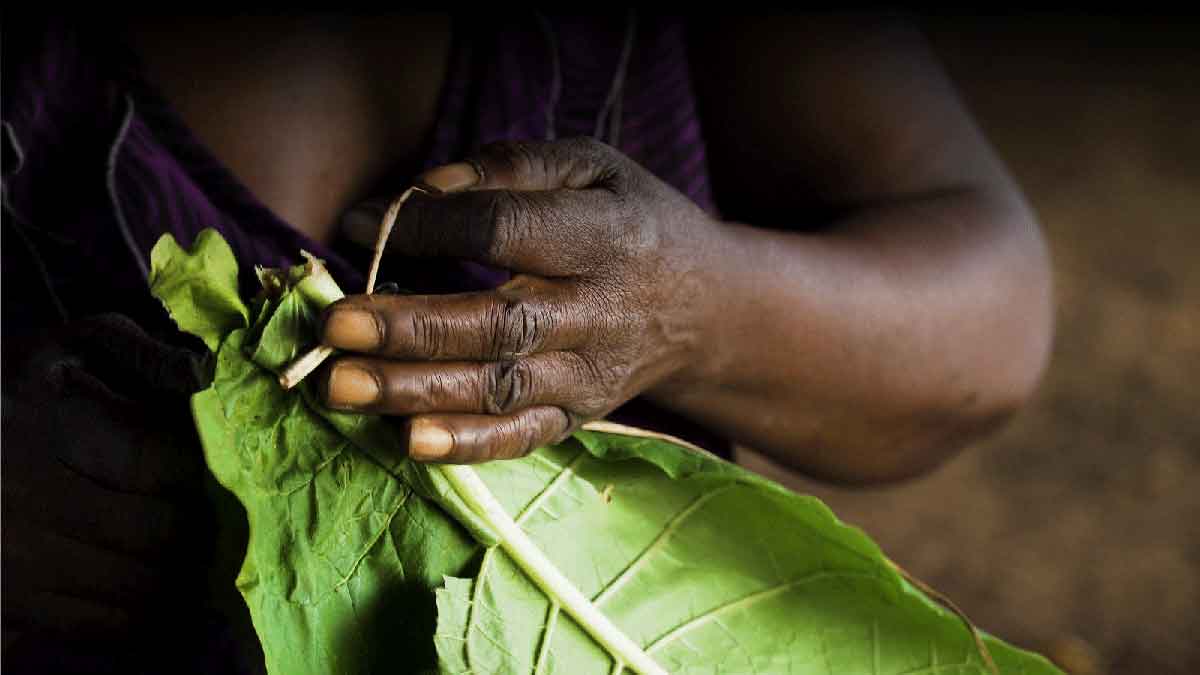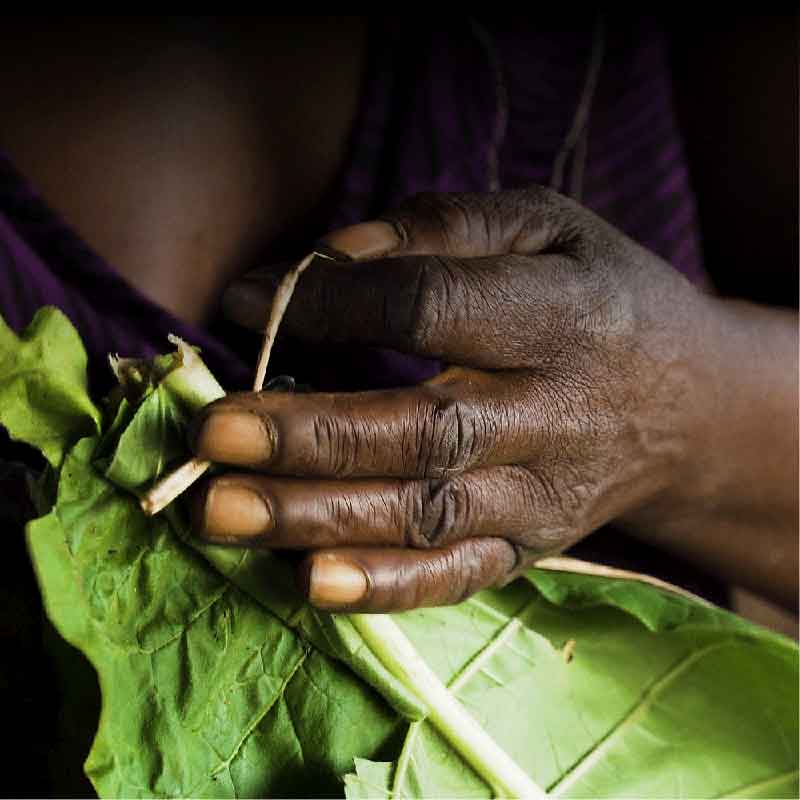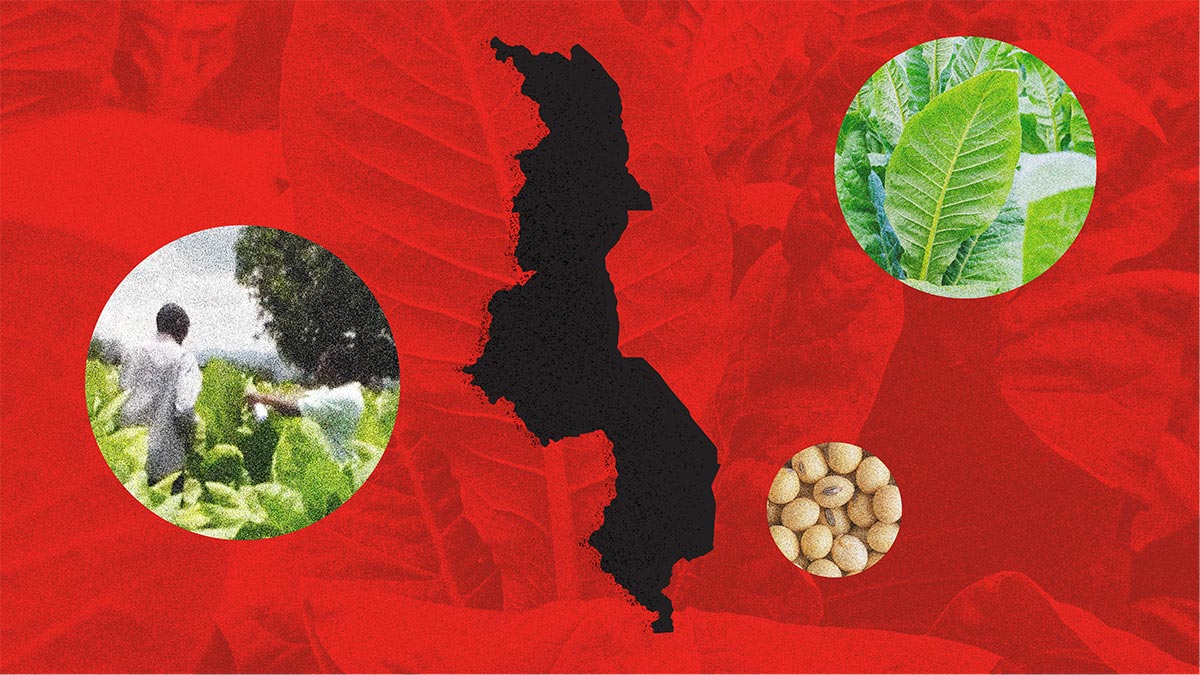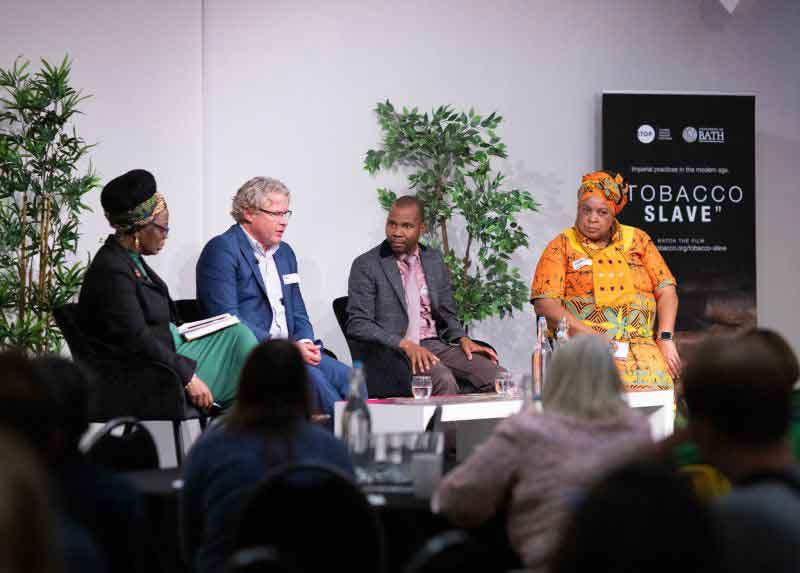- Resources
- News
-
-
Get Email Updates
Sign up for STOP's emails and never miss an update on our latest work and the tobacco industry's activity.
-
Get Funding
Ready to tackle industry interference? You could be eligible for a grant.
-
Share a Tip
Do you have information on tobacco industry misconduct in your country? Let us know.
-
Get Email Updates
Inequity
October 26, 2023

(New York, United States and Bath, United Kingdom, Oct. 26, 2023) — A new documentary, “Tobacco Slave,” illuminates how the blatant colonialism of the past continues to have strong vestiges in the global tobacco industry of today.
The film focuses on the experiences of tobacco farmers in Malawi who work for tobacco leaf-buying companies for very little pay, and who have to endure poor working conditions. These companies supply their products to transnational tobacco companies that continue to fuel the global tobacco epidemic. The film focuses on Bristol, United Kingdom, a historic hub of the transatlantic slave trade and the headquarters of cigarette giant Imperial Brands.
“Tobacco Slave” is released today by the Tobacco Control Research Group at the University of Bath and industry watchdog STOP.
The title comes from Ellen, one of the four farmers featured, who says she doesn’t want her children to be “tobacco slaves.” While global tobacco corporations enjoy billions of dollars in sales, the farmers say they do not earn enough to buy furniture or pay for their children’s school tuition. They describe children working alongside their parents in unsafe conditions, being exposed to disease from handling tobacco leaf, and lacking education because they either can’t take the time to attend school or are too exhausted.
Industry experts and historians have examined modern-day tobacco industry practices that bear a disturbing resemblance to colonial-era exploitation in Africa. Bristol, once a major hub of the transatlantic slave trade and the colonial tobacco industry, is in sharp focus. Imperial Brands evolved from the Wills company, a tobacco business founded in Bristol in 1786 and the first British company to mass-produce cigarettes. It is one of two global cigarette companies facing a legal suit brought on behalf of thousands of tobacco farmers in Malawi, alleging that it facilitated or encouraged exploitative working practices.

A common theme is that [the farmers] know they’re being exploited; they had been led to believe that tobacco could help them create a better life for their children.
Roy Maconachie, director of "Tobacco Slave"
“Tobacco Slave” was made by award-winning filmmakers Roy Maconachie, Professor of Natural Resources and Development at the University of Bath, and Simon Wharf, a videographer based at the university. Maconachie and Wharf have previously produced films on exploitation in cobalt mining and gold and diamond mining in Africa.
“I thank Davies, Ellen, James and Prince for sharing their experiences,” Maconachie said. “A common theme is that they know they’re being exploited; they had been led to believe that tobacco could help them create a better life for their children. It’s a drive that any parent can understand, but they are pursuing this goal under a system that is designed to benefit the industry, not the farmer. ‘Tobacco Slave’ reveals an urgent need to help tobacco farmers transition to more economically and environmentally sustainable crops.”
“Tobacco Slave” confirms that the tobacco industry’s business practices from the colonial era persist in a new form, said Jorge Alday, Director, STOP, Vital Strategies. “The farmers in the film perform backbreaking labor in a system that can keep them in a cycle of debt and poverty. This is not, however, the only way the industry perpetuates inequity. It also engages in racist targeting of specific groups to increase cigarette sales, especially in poorer countries. Governments should make the tobacco industry pay for the harm it has caused to everyone from the grower to the consumer,” Alday said.
A brief on tobacco farming, developed to accompany the film, is available for download here.
Please contact the STOP press office for more information or to arrange to speak with the filmmaker or one of the experts interviewed for “Tobacco Slave.”
About STOP
STOP is a network of academic and public health organizations operating globally as part of the Bloomberg Initiative to Reduce Tobacco Use. STOP connects experts in all aspects of the tobacco industry’s business to expose and counter its relentless efforts to sell harmful, addictive products.
About The Tobacco Control Research Group
The Tobacco Control Research Group (TCRG) are part of STOP and are based at the University of Bath. They are a multidisciplinary, global team that combine rigorous research with investigative techniques to examine corporate influences on health and health policies. TCRG created and run TobaccoTactics, a knowledge exchange platform.
Notes to Editors
About the Film
“Tobacco Slave” is available to view at https://exposetobacco.org/tobacco-slave. The film was developed to explore labor exploitation in the global tobacco industry. Farmers in Malawi share their experiences, and historians, industry researchers and policymakers describe the colonialist roots and current business practices of the tobacco industry. “Tobacco Slave” is 32 minutes long; filming was conducted in Malawi, Kenya, and Bristol, U.K. Screenings are being held in New York, Bristol and Nairobi. Please contact press@exposetobacco.org if you are interested in arranging a screening.
Interviewees
The film features interviews with the following people.
Malawi
- Davies Botha: Estate owner/tobacco farmer
- Prince Makomo: Tobacco farmer
- Ellen Mkandawire: Tobacco farmer
- James Nsabwe: Tobacco farmer
Kenya
- Rachel Kitonyo-Devotsu: McCabe Centre for Law and Cancer
- Dr Peter Magati: International Institute for Legislative Affairs
U.K.
- Simon Birch: Chair of Bristol Civic Society
- Councillor Asher Craig: Deputy Mayor and Cabinet Member, Bristol City Council
- Lee Hutchinson: Curator of History, Bristol Museums
- Andy Rowell: Tobacco Control Research Group, University of Bath
- Dr Richard Stone: Economic Historian, University of Bristol


